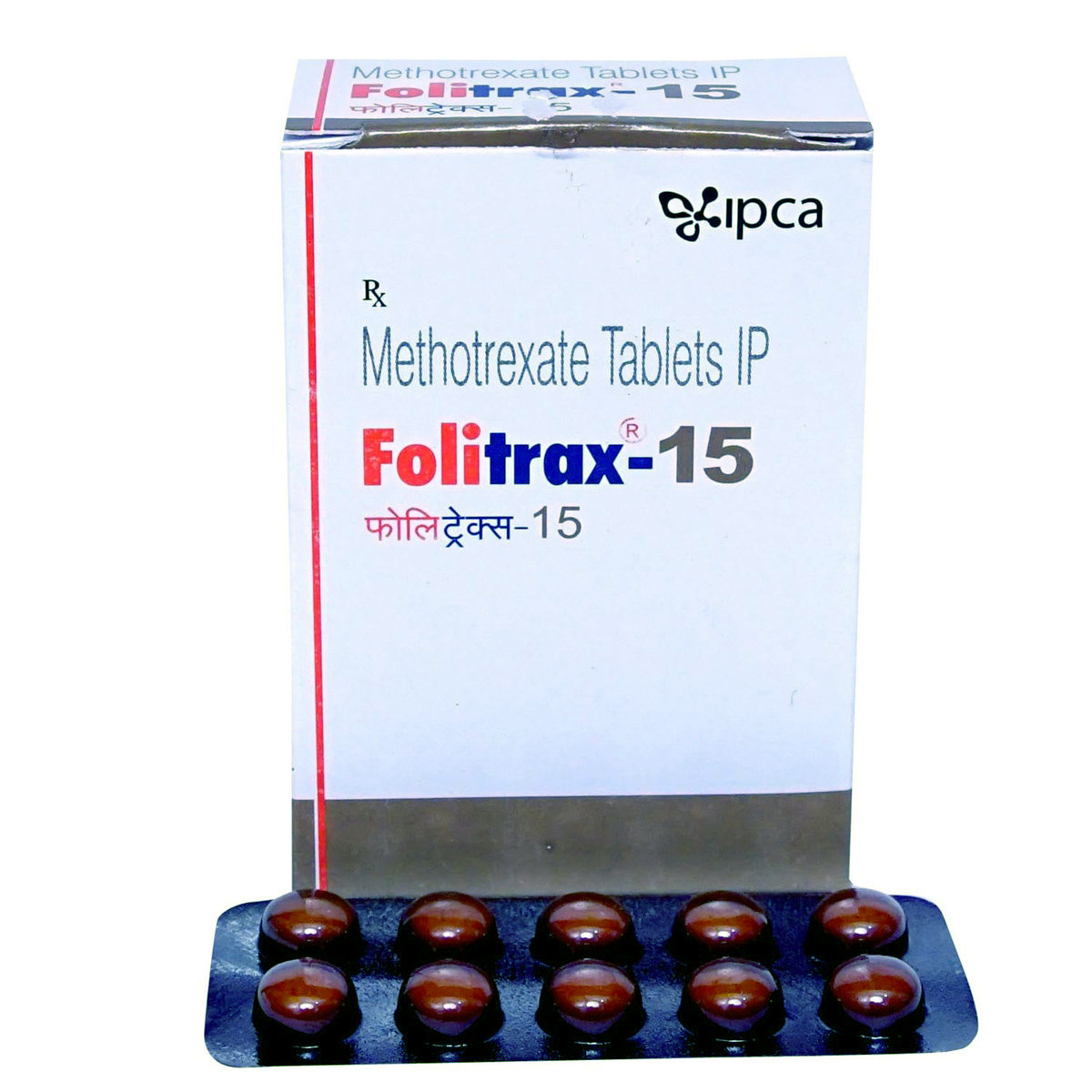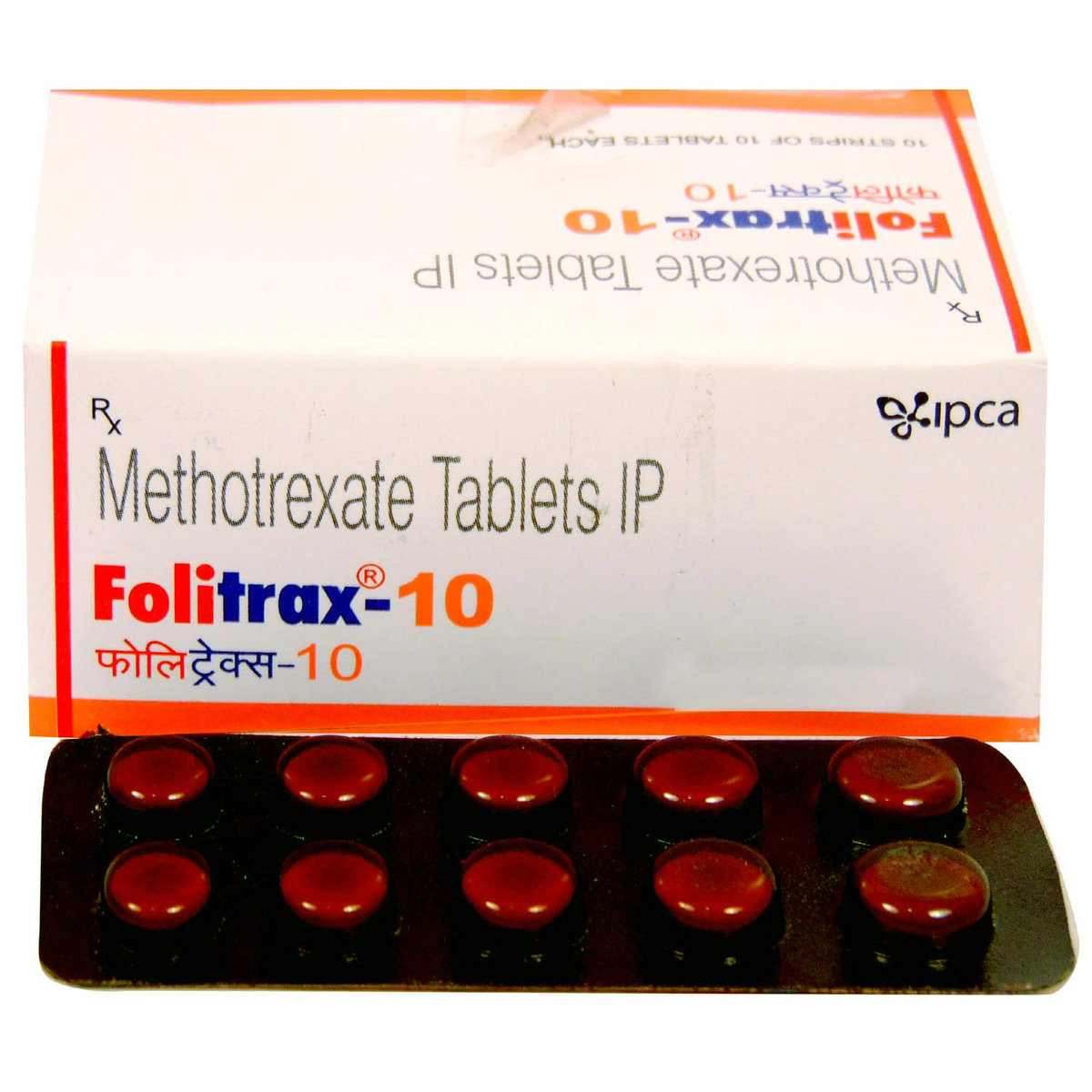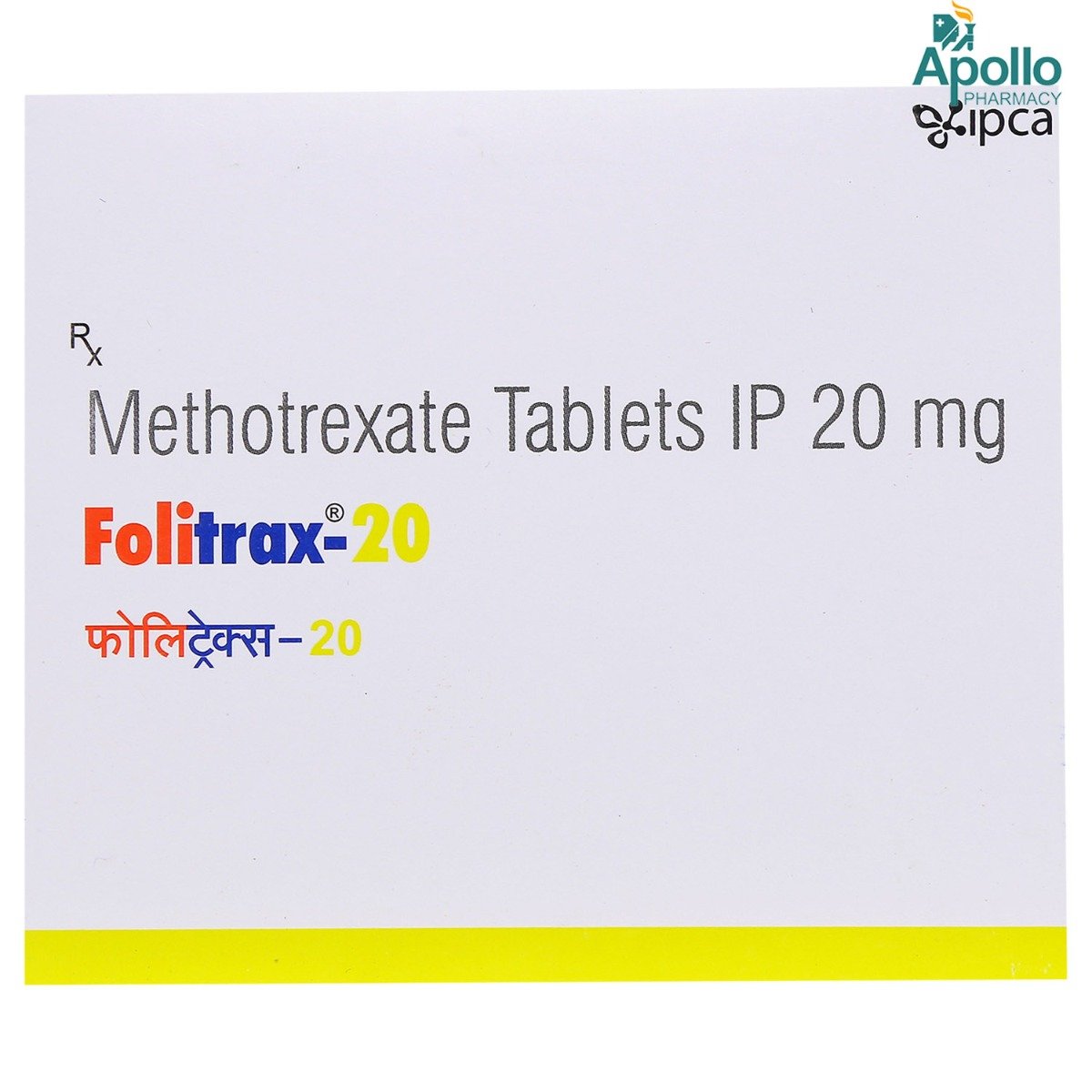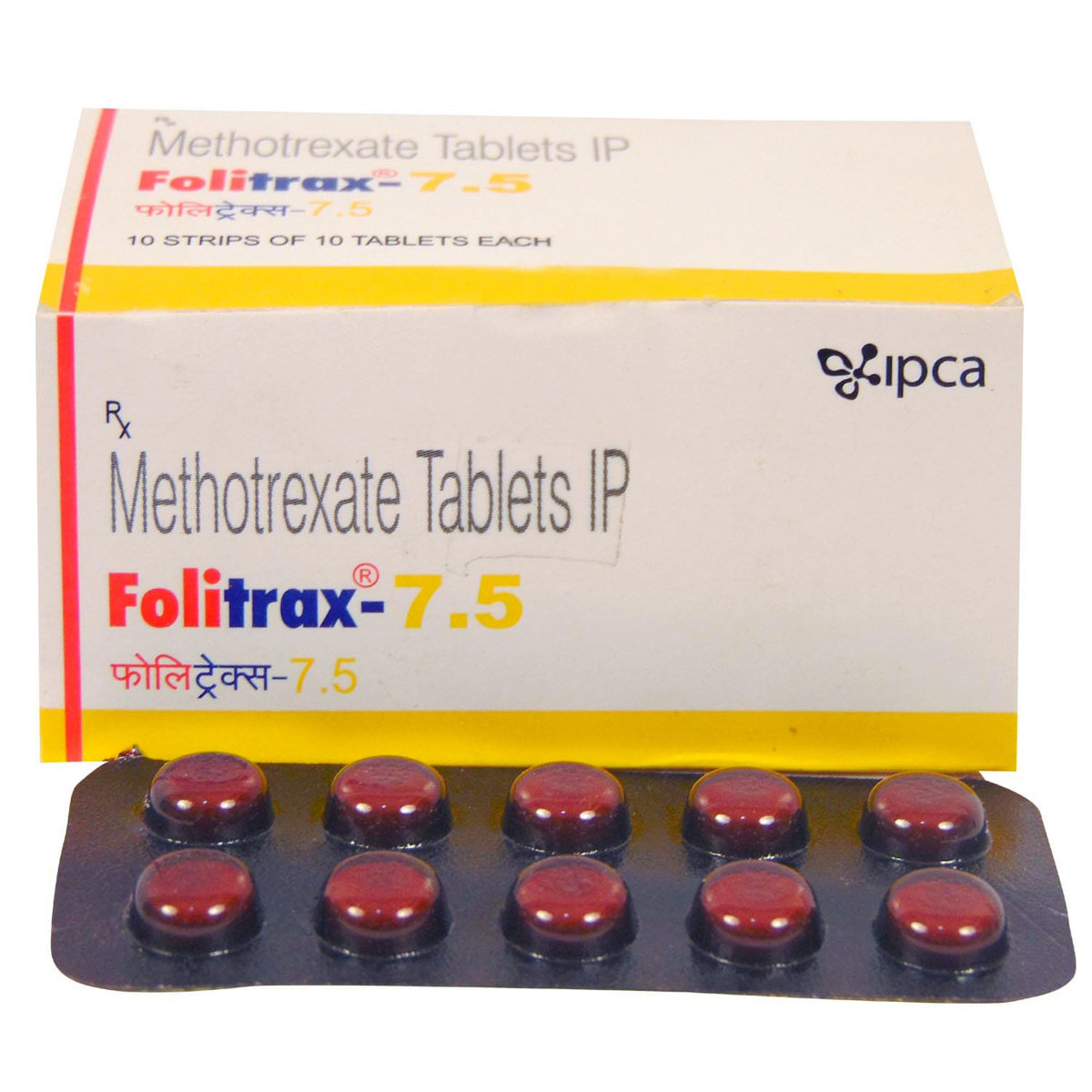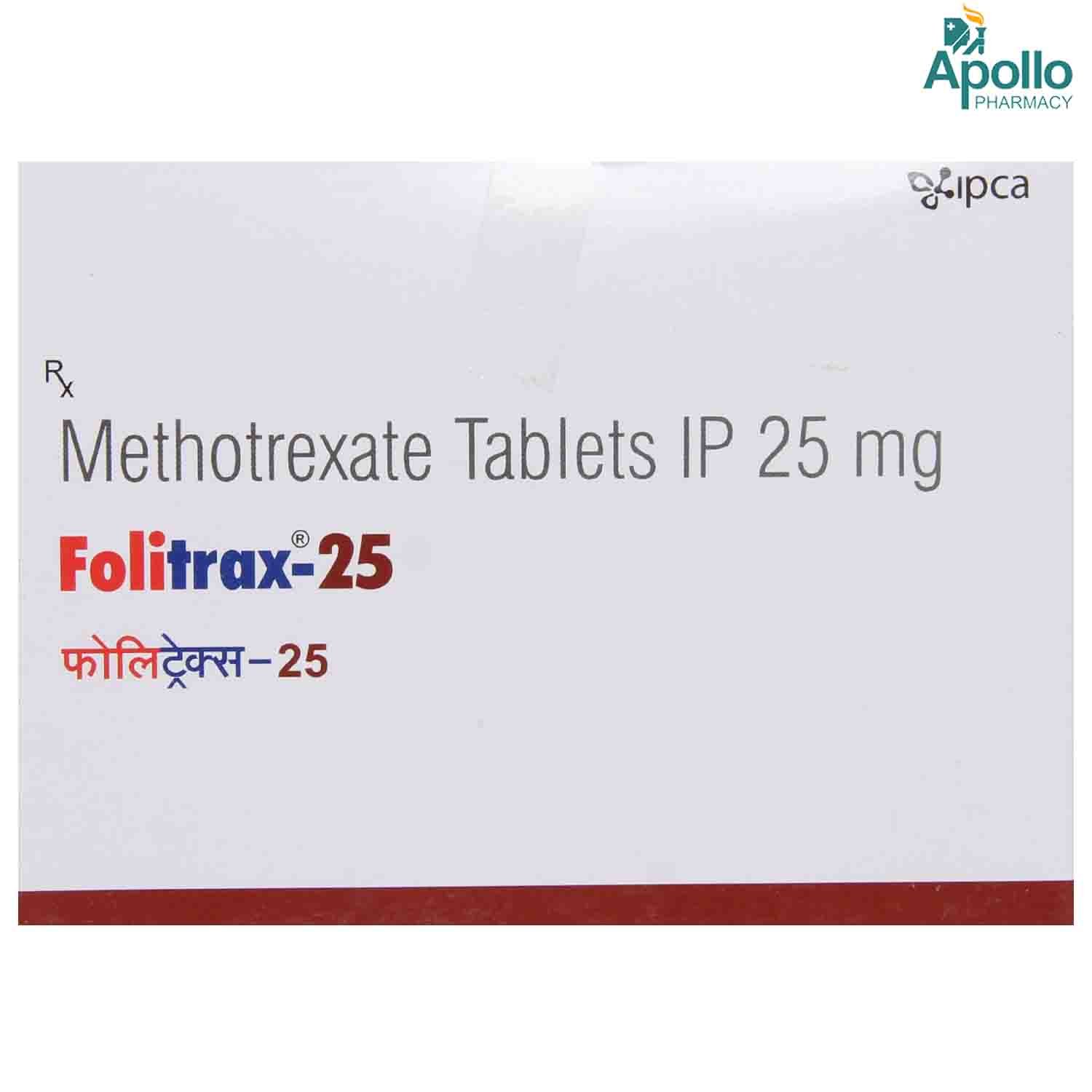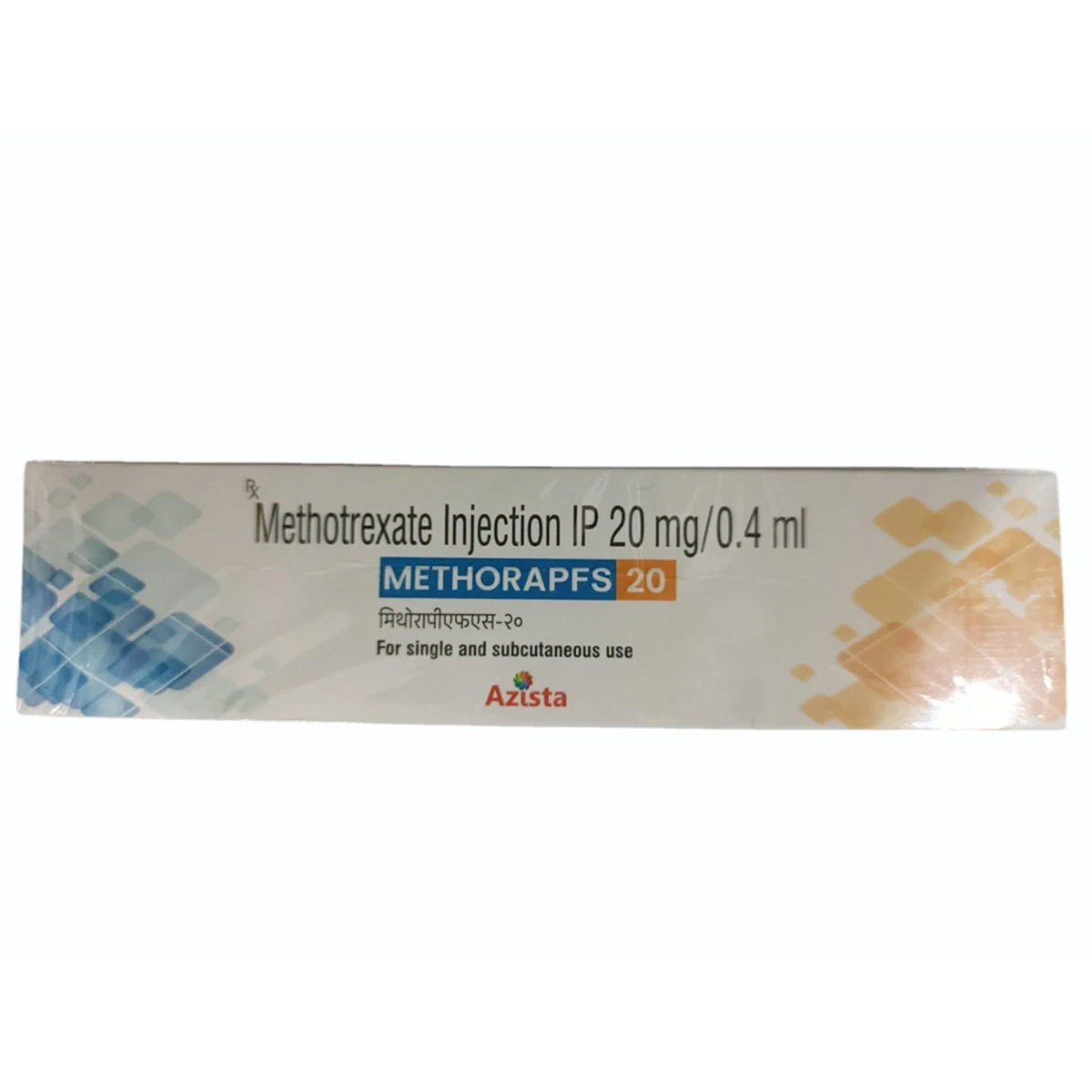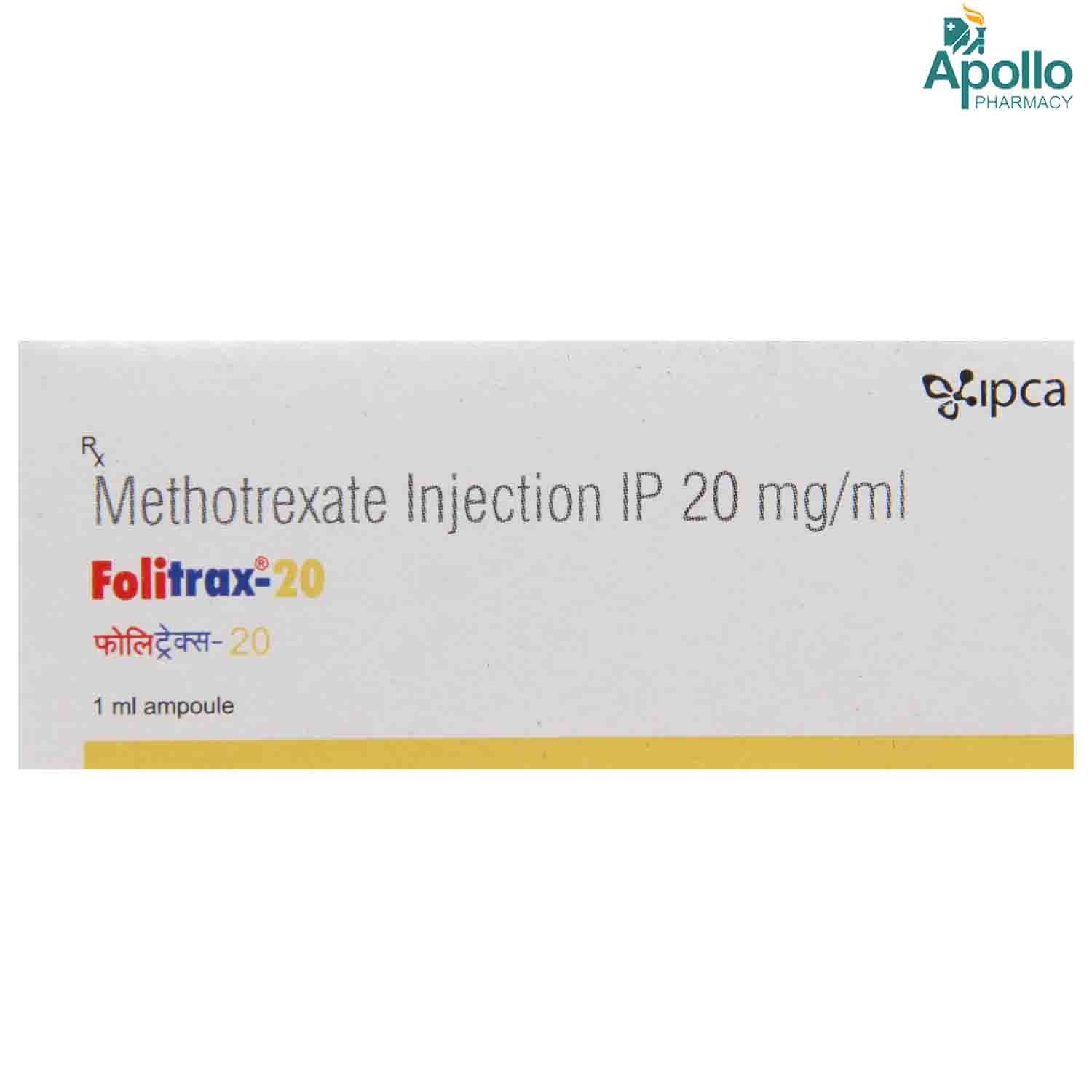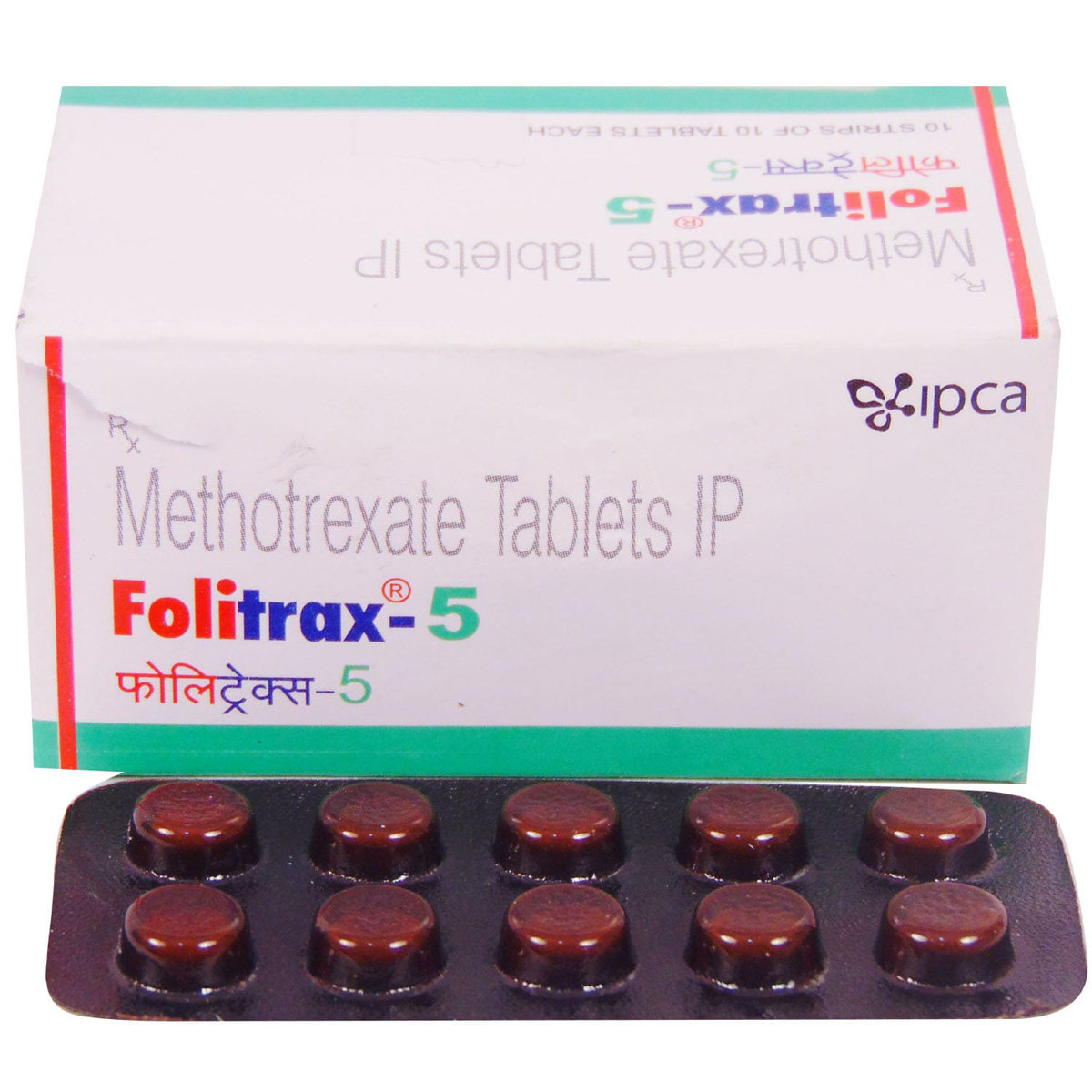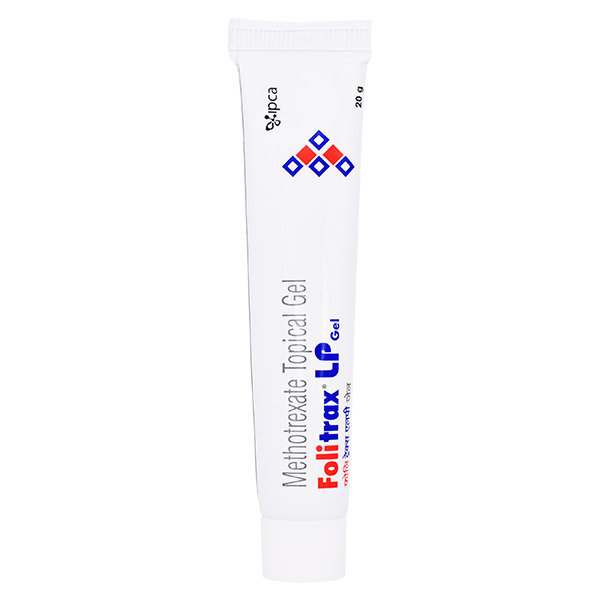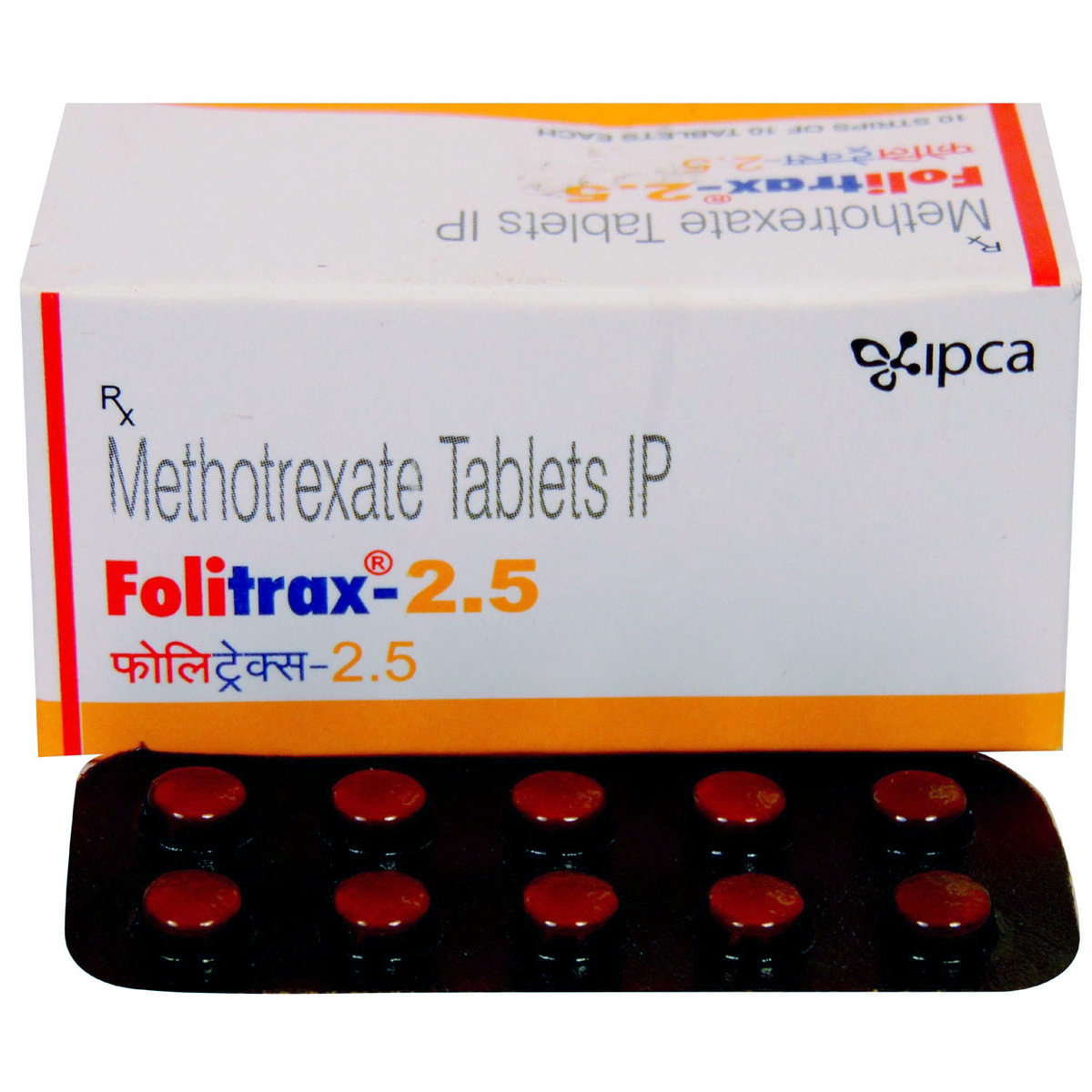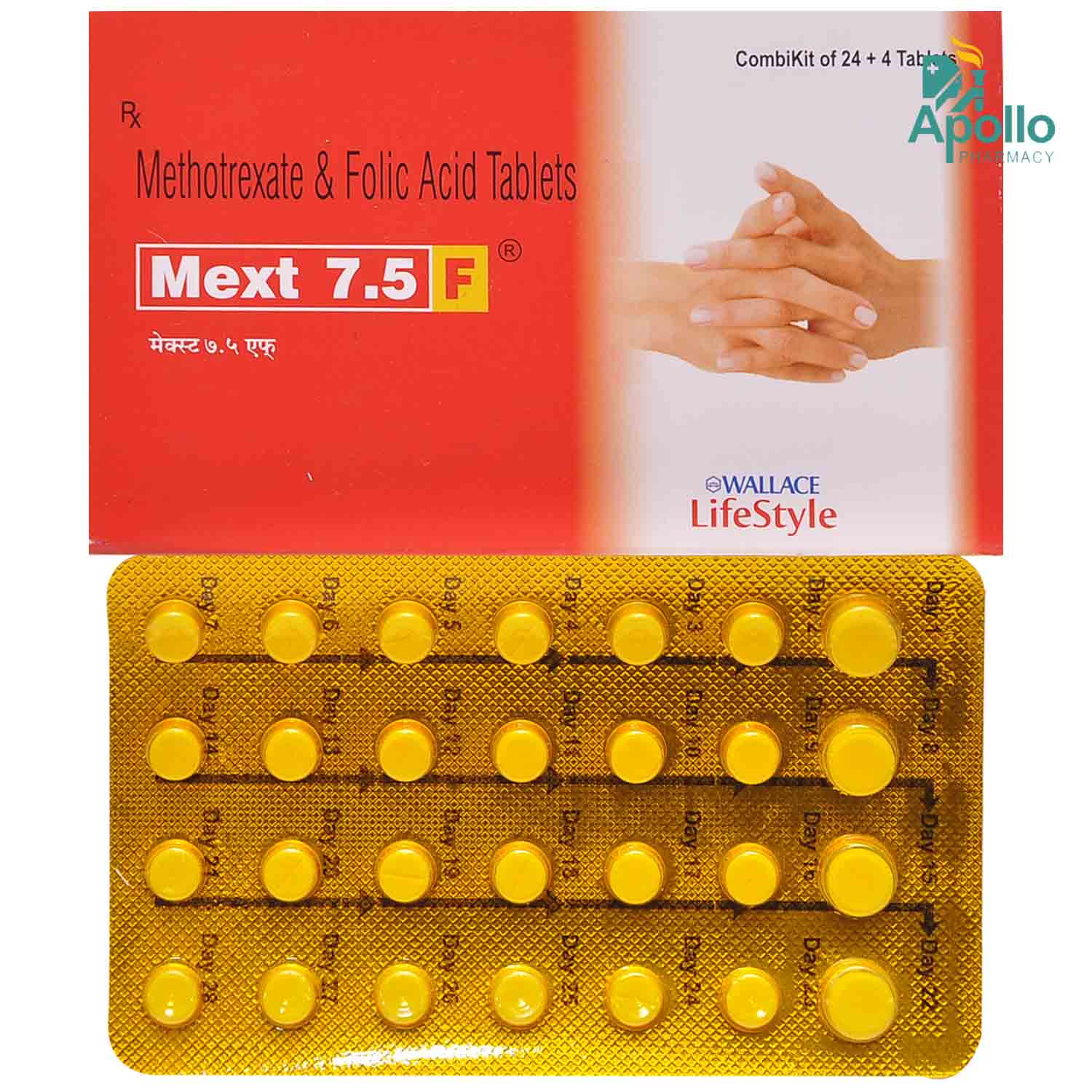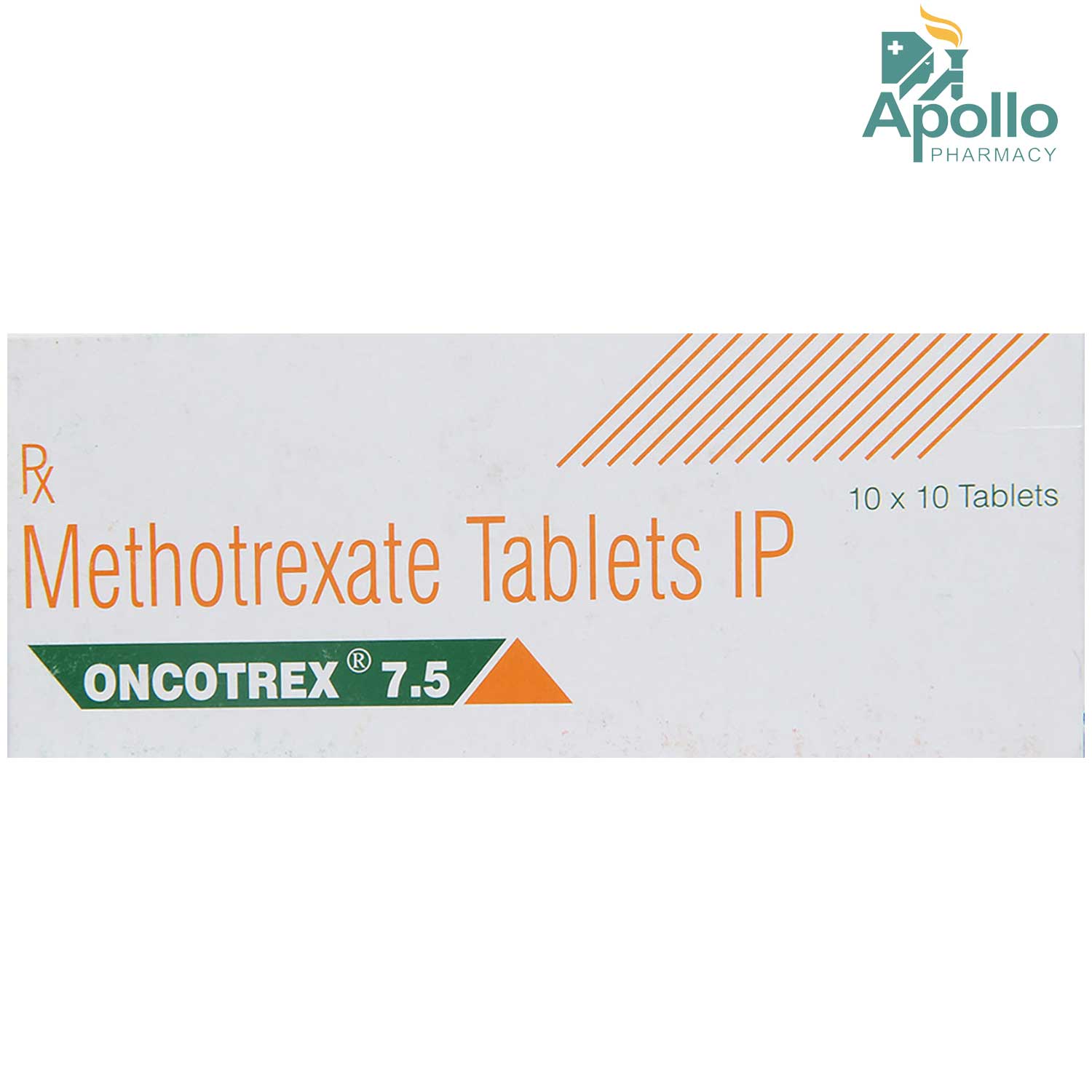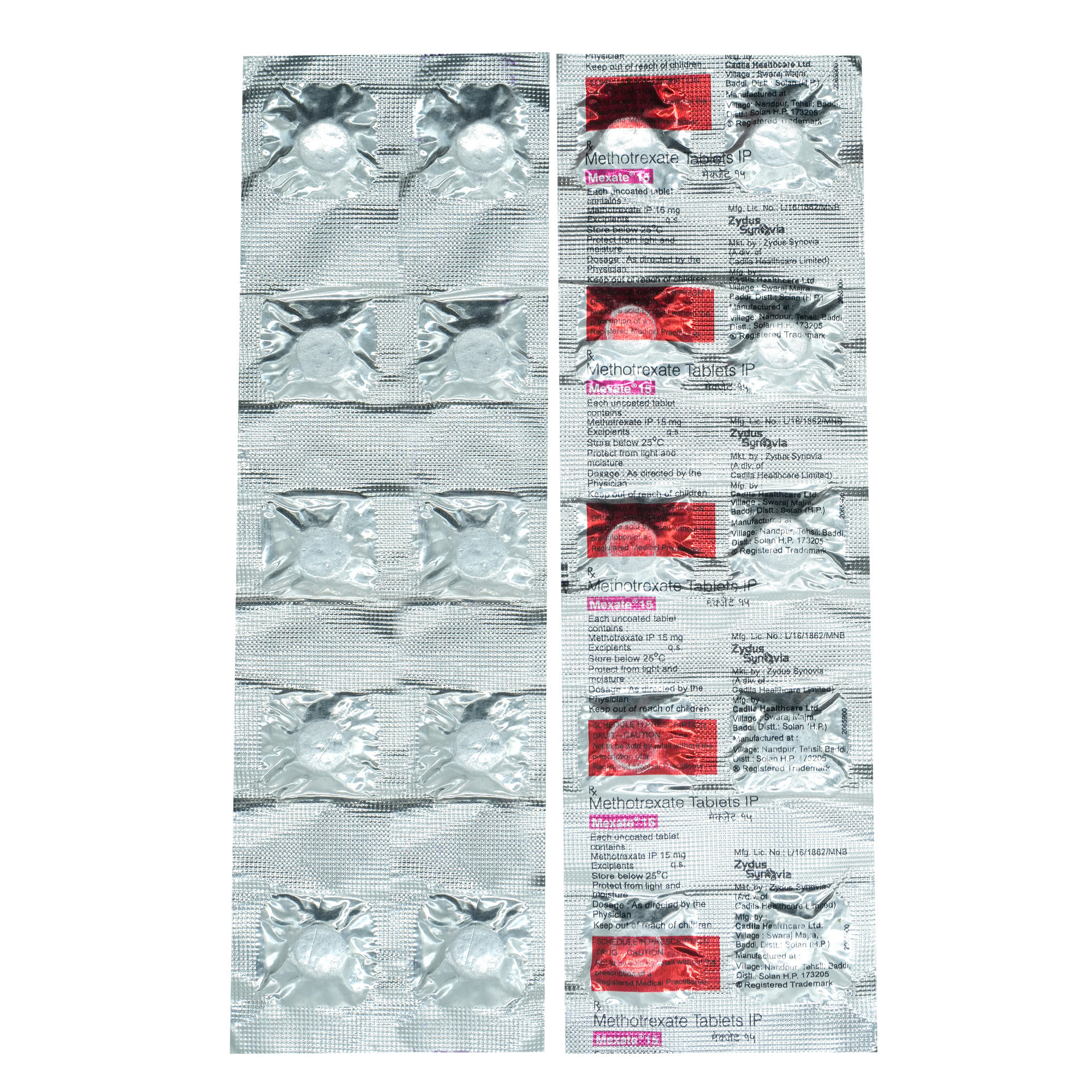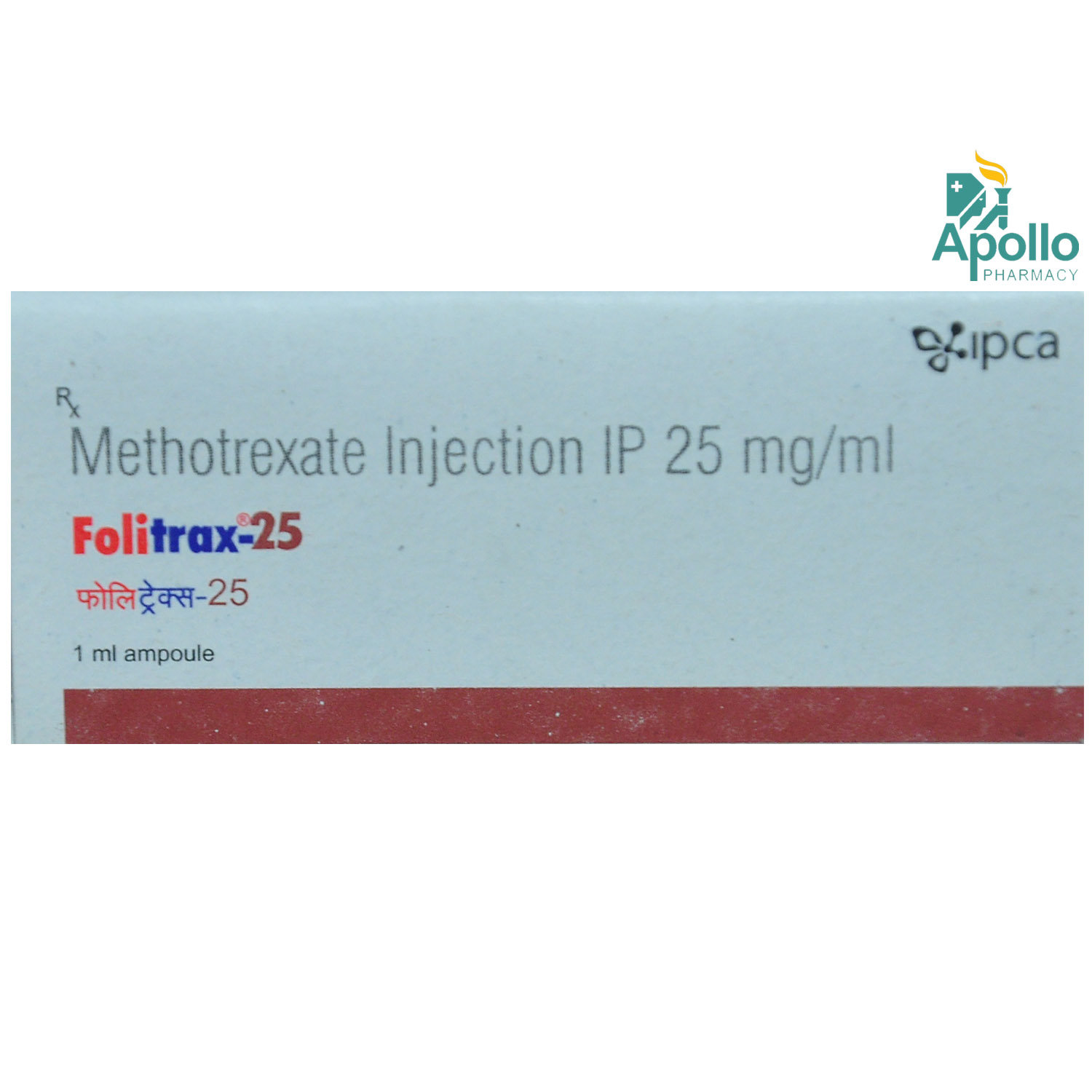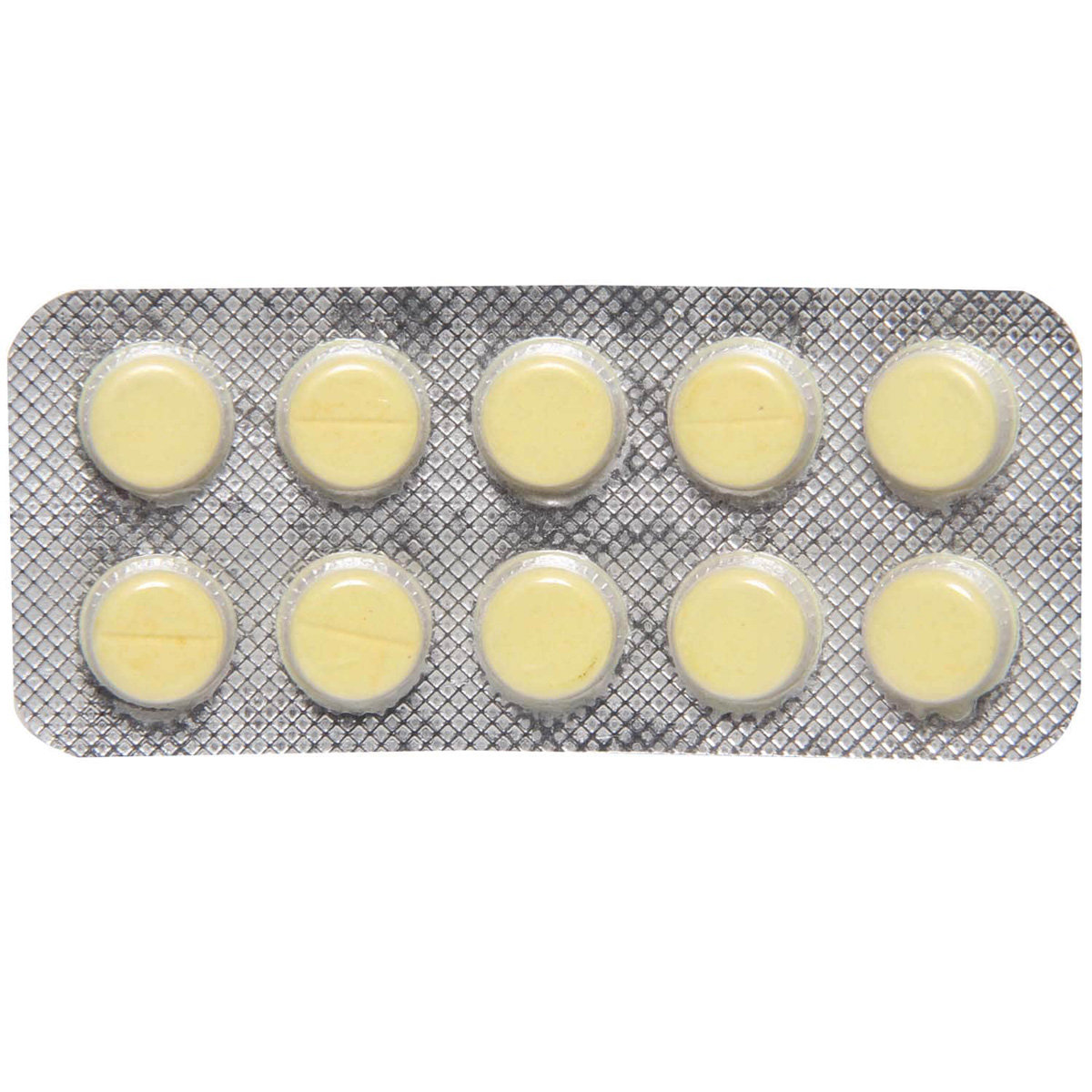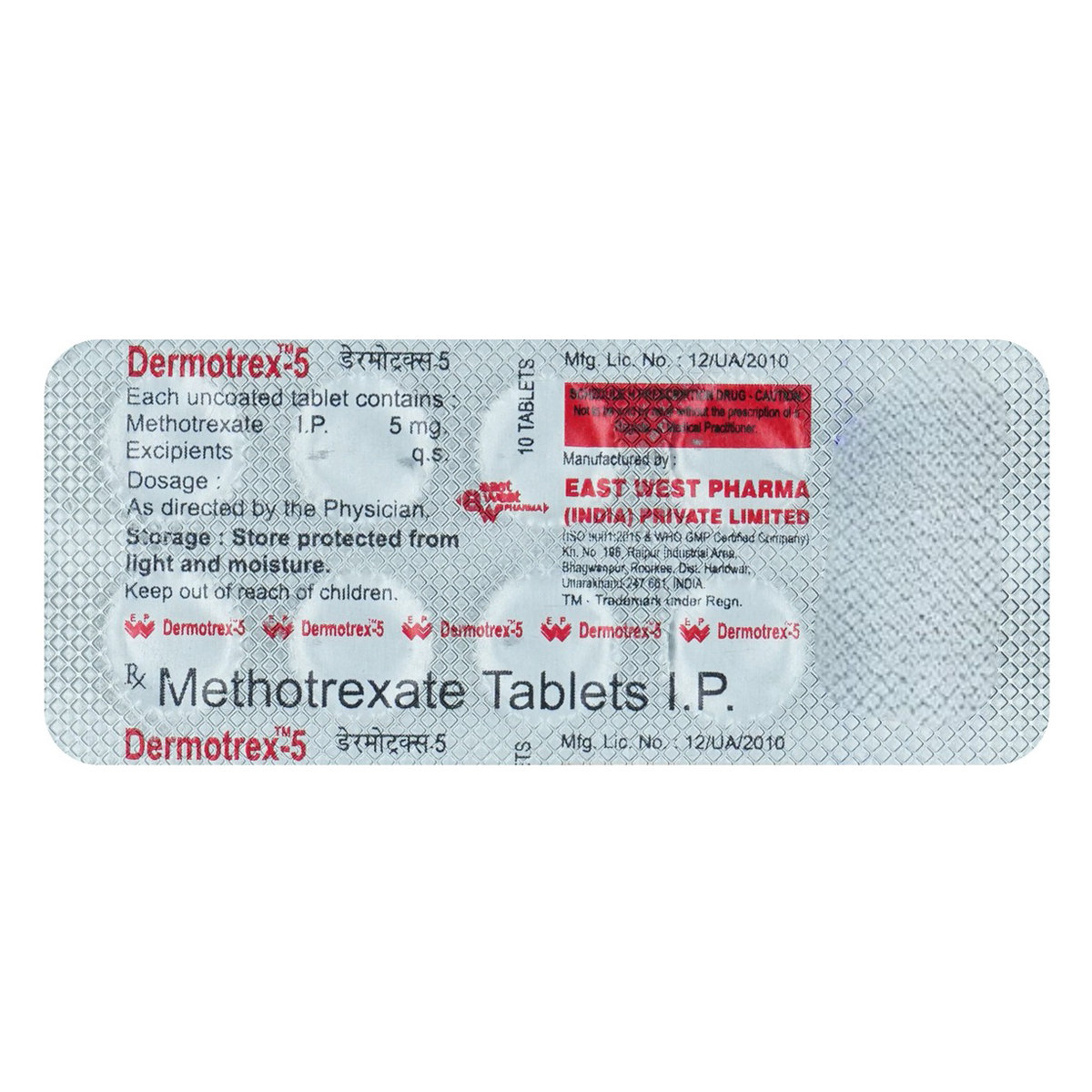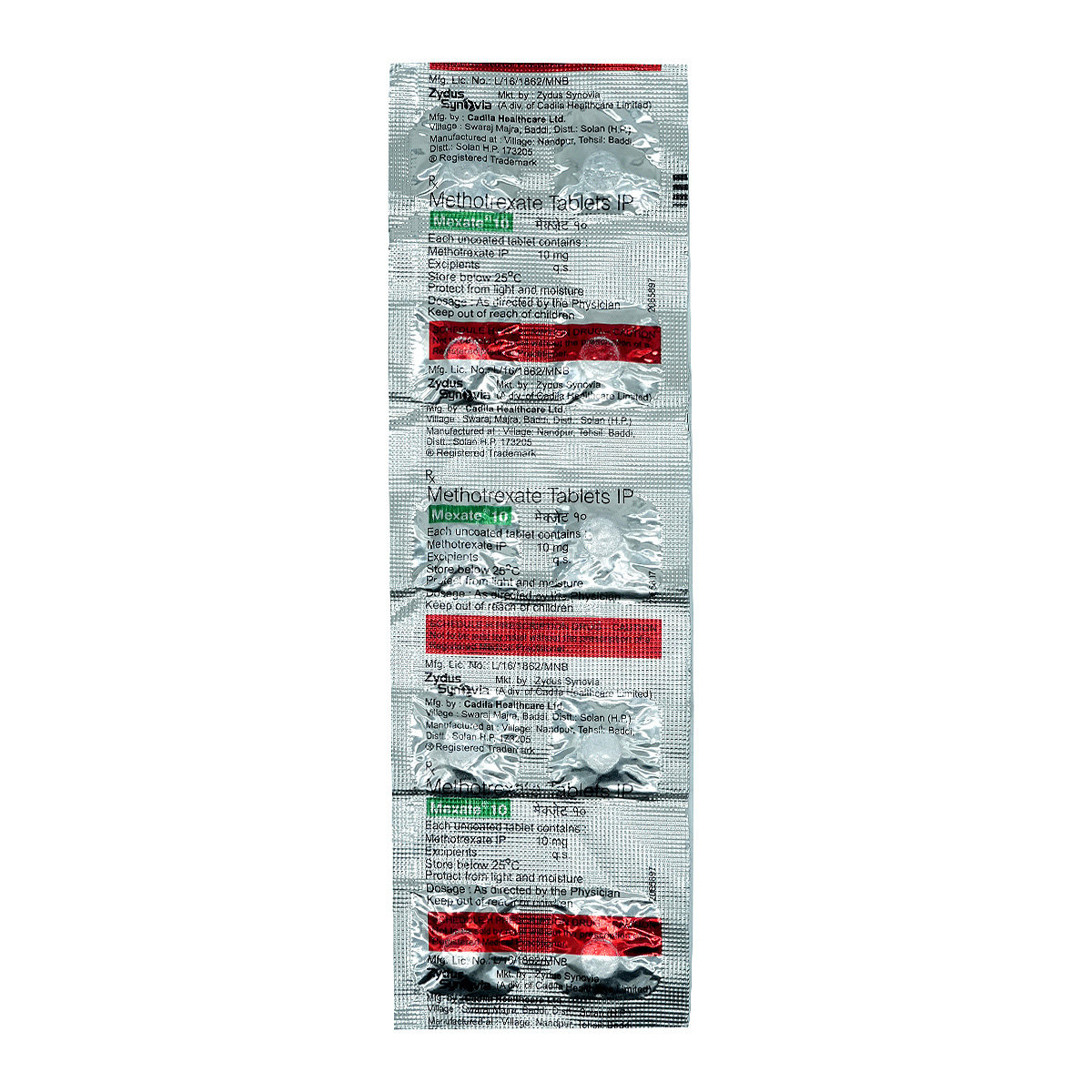Methotrexate
About Methotrexate
Methotrexate is used to treat active rheumatoid arthritis, including polyarticular juvenile rheumatoid arthritis, severe psoriasis, and severe psoriatic arthritis.
It is also used alone or in combination with other medicines to treat breast cancer, lung cancer, head and neck cancer, mycosis fungoides (a type of blood cancer), and advanced-stage non-Hodgkin lymphomas (cancer that starts in the lymphatic system).
Methotrexate contains 'Methotrexate', which works by interrupting the processes of the immune system that cause inflammation in the joint tissues. It reduces pain and inflammation and delays joint damage and disease progression over time.
Methotrexate prevents and stops the growth of cancer cells, thereby helping treat cancer. It treats psoriasis by suppressing the overactive immune system that is responsible for causing psoriasis.
In some cases, Methotrexate may cause side effects such as nausea, vomiting, diarrhoea, unusual fatigue, dizziness, headache, loss of appetite, and lowered resistance to infections. You are advised to talk to your doctor if you experience these side effects persistently.
Do not take Methotrexate if you are pregnant or breastfeeding. Methotrexate may cause dizziness and fatigue, so drive only if you are alert. Inform your doctor about your medications and health condition to rule out any unpleasant side effects/interactions.
Uses of Methotrexate
• Treatment of Rheumatoid Arthritis: Methotrexate is commonly prescribed to manage the symptoms of rheumatoid arthritis, reducing inflammation and pain in the joints.
• Management of Psoriasis: Methotrexate can be used to treat severe psoriasis, helping to clear the skin and reduce scaling.
• Chemotherapy for Certain Cancers: Methotrexate may be utilized in lower doses as part of a chemotherapy treatment regimen for specific types of cancers, such as osteosarcoma or certain leukemias.
• Treatment of Crohn's Disease: Methotrexate can also be beneficial in treating Crohn's disease, a type of inflammatory bowel disease, to help control inflammation.
• Autoimmune Disease Management: Methotrexate is sometimes used to manage other autoimmune conditions, where it helps to suppress the immune system and reduce abnormal immune responses.
Medicinal Benefits
- Methotrexate is used to treat rheumatoid arthritis and psoriatic arthritis. It reduces inflammation and pain in joints. It slows or prevents joint damage and disease progression.
- It helps treat psoriasis by suppressing the overactive immune response that causes skin cell overgrowth. It reduces scaling, redness, and thickness of psoriatic plaques.
- Methotrexate is used in the management of breast cancer, lung cancer, head and neck cancer, mycosis fungoides (a type of blood cancer), and advanced-stage non-Hodgkin lymphomas.
- It works by interfering with DNA synthesis, thereby stopping or slowing the growth of cancer cells.
- It helps manage inflammation in the digestive tract.
- Provides disease control by modulating the immune system.
- Offers long-term relief from autoimmune and inflammatory conditions.
- Improves treatment outcomes in certain cancers by preventing abnormal cell growth.
Directions for Use
- Take Methotrexate with food or as advised by your doctor.
- It is advised to take Methotrexate once a week; however, follow your doctor’s recommendation regarding the dosage and duration.
- Swallow Methotrexate as a whole with a glass of water.
- Do not crush, break, or chew it.
Storage
Side Effects of Methotrexate
- Nausea
- Vomiting
- Diarrhoea
- Unusual fatigue
- Dizziness
- Headache
- Loss of appetite
- Elevated liver enzymes
- Lowered resistance to infections
- Tingling sensation
- Leukopenia (decreased number of white blood cells)
- Soreness of the mouth and lips
Medicines Containing this Salt
View AllDrug Warnings
- Do not take Methotrexate if you are allergic to any of its contents; if you have immunodeficiency conditions, bone marrow problems, low white blood cell count, low platelet count, serious anaemia, liver problems due to alcohol abuse, chronic liver disease; if you are pregnant or breastfeeding.
- Talk to your doctor before taking Methotrexate if you have/had liver or kidney problems, ulceration in the stomach or bowels, poor general condition, received any vaccinations or if you are due to have any vaccinations, diabetes, ascites (fluid in the stomach area), lung problems or fluid in the lungs.
- Methotrexate may cause dizziness and fatigue, so drive only if you are alert.
- Take Methotrexate exactly as directed by the doctor, as it may cause serious problems if not taken in the dose and duration prescribed by the doctor.
- Stop taking Methotrexate and consult your doctor immediately if you have mouth sores, diarrhoea, a fever, dehydration, cough, bleeding, shortness of breath, any signs of infection, or a skin rash.
- Inform your doctor if you are taking any other medicines, including supplements and herbal products.
Drug Interactions
Drug-Drug Interactions: Methotrexate may interact with pain killers (celecoxib, acetaminophen, hydrocodone), antidepressants (duloxetine), immunosuppressants (etanercept), anti-rheumatoid (adalimumab), antacids (esomeprazole), and anti-malarial (hydroxychloroquine).
Drug-Food Interactions: Avoid consuming alcohol whilst on treatment with Methotrexate.
Drug-Disease Interactions: Inform your doctor if you have immunodeficiency conditions, bone marrow problems, low white blood cell count, low platelet count, serious anaemia, liver problems due to alcohol abuse, or chronic liver disease.
Drug-Drug Interactions Checker List:
Safety Advice

Alcohol
unsafeYou are recommended to avoid alcohol consumption while taking Methotrexate.

Pregnancy
unsafeMethotrexate may cause serious birth defects. It is not recommended to take Methotrexate while you are pregnant.

Breast Feeding
unsafeMethotrexate passes into breast milk. Avoid breastfeeding whilst on treatment with Methotrexate.

Driving
cautionMethotrexate may cause dizziness and tiredness; do not drive or operate heavy machinery if you experience these symptoms.

Liver
cautionDo not take Methotrexate if you have chronic liver disease. Please consult your doctor if you have liver impairment before taking Methotrexate.

Kidney
cautionPlease consult your doctor if you have kidney impairment before taking Methotrexate.

Children
cautionMethotrexate should be used with caution in children and only if prescribed by the doctor.
Habit Forming
Diet & Lifestyle Advise
Arthritis:
- Physical activity helps in strengthening muscles and relieves joint stiffness. Gentle exercises like 20-30minutes of walking or swimming would be helpful.
- Performing yoga may also help in improving joint flexibility and pain management.
- Maintain a healthy weight by performing regular low-strain exercises and eating healthy food.
- Get adequate sleep, as resting the muscles can help reduce inflammation and swelling.
- De-stress yourself by meditating, reading books, taking a warm bubble bath or listening to soothing music.
- Acupuncture, massage and physical therapy may also be helpful.
- Eat food rich in antioxidants such as berries, spinach, kidney beans, dark chocolate, etc.
- Foods containing flavonoids help in reducing inflammation. These include soy, berries, broccoli, grapes and green tea.
- Avoid smoking and alcohol consumption.
Psoriasis:
- Include foods such as cherries, berries, leafy vegetables, salmon, sardines, and fish rich in omega-3 fatty acids.
- Consume antioxidant-rich spices and herbs like cumin, ginger, sage and thyme.
- Avoid processed foods, refined sugars, and fatty foods.
- Limit intake of food that might trigger allergies, such as dairy products, soy, eggs, and nuts.
- Include fruits, vegetables, whole grains, healthy fats and fish in your diet.
- Reducing stress and maintaining a good sleep cycle would be helpful.
- Avoiding getting in contact with harsh soaps, detergents and rough fabrics.
Cancer:
- Consume a healthy diet and exercise regularly to maintain a proper weight.
- Avoid smoking and alcohol consumption.
- Include leafy vegetables, citrus fruits, fatty fish, berries, yoghurt, apples, peaches, cauliflower, cabbage, broccoli, beans, herbs, and spices in your diet.
- Avoid fast food, fried food, processed meats, refined carbs, and added sugar.
- Get optimal sleep; rest well.
Special Advise
- Women of child-bearing age must use effective contraception whilst on treatment with Methotrexate and for at least 6 months after the last dose.
- Male patients are advised to consult their doctor regarding the possibility of sperm preservation before starting the treatment, as Methotrexate may cause infertility.
- Methotrexate may make you more susceptible to infections; consult your doctor if you develop any signs of infections such as fever, sore throat, breathlessness, jaundice, unexplained bleeding or bruising.
- Your doctor may advise regular blood tests, kidney and liver tests to monitor your condition.
- If you miss a dose of Methotrexate, call your doctor and ask if you should take the missed dose or not.
Patients Concern
Disease/Condition Glossary
Rheumatoid arthritis: It is an autoimmune disease (the body's immune system attacks its tissue) that leads to joint pain and damage. Symptoms of rheumatoid arthritis include pain, inflammation of joints, difficulty moving, and swelling.
Psoriatic arthritis: It is a type of inflammatory arthritis which occurs in patients with psoriasis. It could also occur in patients without psoriasis, particularly in those who have relatives with psoriasis. It affects large joints in the lower extremities, distal joints of toes and fingers, back, and pelvis. Symptoms include inflammation of joints, difficulty moving, swelling, patches of red, scaly skin, and pain.
Psoriasis: It is a chronic autoimmune skin condition that causes the skin to multiply ten times faster than normal. This leads to a rapid build-up of skin cells, causing scaling on the skin surface. Symptoms include inflamed, red, raised patches of skin, soreness around the patches, itching, burning sensations, painful, swollen joints, and dry skin.
Cancer: It is a genetic change in which the cells divide uncontrollably and spread into surrounding tissues. There are two types of cancer, namely benign (localised) and metastatic (spread to the whole body). Cancer growth can be prevented by chemotherapy (with strong antibiotics), radiation, and stem cell therapy.
FAQs
Methotrexate is used to treat active rheumatoid arthritis, including polyarticular juvenile rheumatoid arthritis, severe psoriasis, and severe psoriatic arthritis. It is also used alone or in combination with other medicines to treat breast cancer, lung cancer, head and neck cancer, mycosis fungoides (a type of blood cancer), and advanced-stage non-Hodgkin lymphomas (cancer that starts in the lymphatic system).
Methotrexate acts as an immunosuppressant, which helps in reducing inflammation and preventing joint stiffness, thereby providing relief from rheumatoid arthritis.
Methotrexate works by suppressing the overactive immune system that is responsible for causing psoriasis. Methotrexate interferes with the synthesis of genetic material (DNA) and the growth of cells that multiply faster than usual, thereby helping in treating psoriasis and psoriatic arthritis.
Diarrhoea might be a side-effect of Methotrexate. Stop taking Methotrexate and consult your doctor if you have diarrhoea. Do not take anti-diarrheal medicine on your own.
Methotrexate can affect egg and sperm production and could lead to birth defects. Women of child-bearing potential and men using Methotrexate must use effective contraception while on treatment with Methotrexate and for at least six months after stopping the treatment. Methotrexate can lead to infertility. Therefore, male patients are advised to talk with their doctor regarding the possibility of sperm preservation before starting the treatment with Methotrexate.
Methotrexate causes leukopenia (decreased number of white blood cells) and hence may make you more susceptible to infections. Consult your doctor if you develop any signs of infection, such as fever, sore throat, breathlessness, jaundice, unexplained bleeding or bruising.
Methotrexate may cause mouth sores. Stop taking Methotrexate and consult your doctor if you have sores in the mouth. Your doctor may recommend folate supplements to treat mouth sores.
Before using Methotrexate, you should inform your doctor about your medical history, including any ongoing medicines, to avoid potential interactions and minimise side effects.
Many people will notice an improvement in their symptoms after six to eight weeks of taking methotrexate. Still, it may take up to six months to reap the full advantages of the medication.
Methotrexate is not a painkiller. It is an anti-metabolite.
Methotrexate may cause inflammation of the mouth lining (mucositis), which can lead to oral ulcers, especially if used in high amounts. Patients with RA may develop mouth ulcers; however, usual ulcer treatment can help. However, it should only be taken if prescribed by the doctor.
During your methotrexate treatment, you may be given folic acid tablets. Folic acid protects your body's healthy cells and minimizes some of the adverse effects of methotrexate. It may reduce your chances of being ill (vomiting) or experiencing diarrhoea.
Because Methotrexate might alter the liver and blood cells, you must undergo regular blood tests during your treatment. This is important because you may not have symptoms with some of these issues.
Use effective contraception and wait at least three months after the man stops methotrexate treatment before attempting to conceive.
Methotrexate may lower the number of white cells in your blood, making you more likely to get an infection.
Methotrexate is not suitable for some people. To ensure your safety, tell your doctor about all your medical conditions and medications before taking it. Based on your medical condition, your doctor will advise you whether to take it.
Common side effects of Methotrexate may include nausea, vomiting, diarrhoea, unusual fatigue, dizziness, headache, loss of appetite, lowered resistance to infections, tingling sensation, leukopenia (decreased number of white blood cells), and soreness of mouth and lips. If you experience these side effects persistently, you are advised to talk to your doctor.
Yes, you can consume. However, you should avoid intake of unpasteurized milk, and soft cheeses are recommended.
It's also best to avoid too much caffeine, which is found in coffee, tea, cola, energy drinks, and chocolate. Caffeine can prevent Methotrexate from working as it should.
Drinking alcohol is generally acceptable if you are taking Methotrexate for the long-term treatment of an inflammatory disorder at a low weekly dose (25 mg or less). If you take large dosages of methotrexate, consult your physician and seek medical advice.
Methotrexate may increase your risk of liver and lung problems, especially if you take a high dose. Your doctor, however, will closely monitor you while you are taking Methotrexate. Routine check-ups will reveal any concerns or issues. If you have any concerns about taking Methotrexate, consult your doctor.
Absolutely not. Methotrexate is harmful to a fetus and can cause congenital mutations. Women should wait 90 days after finishing methotrexate before getting pregnant. Men should also wait 90 days before attempting to conceive because methotrexate may impair sperm (sperm formation takes 90 days).
Methotrexate may somewhat reduce your body's response to immunizations, making them less effective than if you were not taking it. It is usually recommended that you be up to date on your immunizations before beginning Methotrexate. If you have any concerns, please seek medical advice from your healthcare professional.
Taking more than the recommended dosage does not provide additional pain relief and can increase the risk of adverse effects.
Take the missed dose as soon as you remember, unless it's almost time for your next dose. In this case, skip the missed dose and take your next dose at the regular time. Never take a double dose to make up for a missed one.
Methotrexate should be used with caution in children and only if prescribed by the doctor.
Methotrexate may cause dizziness and tiredness; do not drive or operate heavy machinery if you experience these symptoms.

